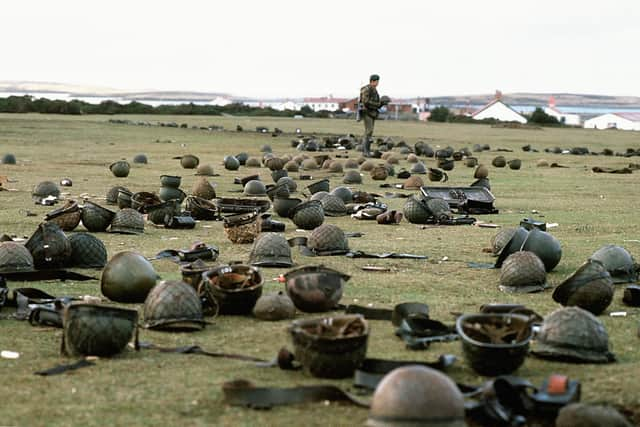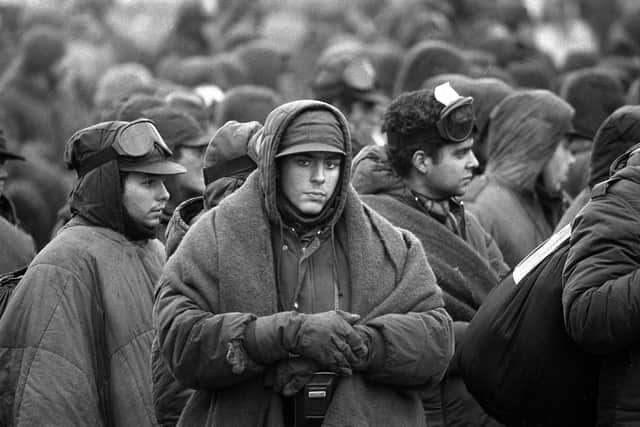Commons pledge on use of force against island invaders (1982)
and live on Freeview channel 276
The fleet, which was expected to be at war readiness by Saturday, April 23, 1982, when it was due to come within strike range of Argentinian aircraft, had had its first eyeball confrontation with the invaders.
An unarmed Argentinian surveillance plane had flown over the carrier HMS Hermes and was intercepted by a Sea Harrier jump jet, which locked deadly Sidewinder missiles on the “spy” – but had orders not to shoot.
Advertisement
Hide AdAdvertisement
Hide AdThe meeting, which was reported to have been “only wing-tips away at 35,000ft”, came as British Foreign Secretary Francis Pym prepared to fly to Washington in the latest stage of the peace process.


But he was setting out for the talks after telling the Commons categorically that he could not rule out the use of force, even while the peace initiative was in train.
His statement – the first time that Britain’s stance had been put so specifically – came amid reports that a section of the taskforce had peeled off from the main convoy and was heading for South Georgia.
The Defence Ministry also reported that an Argentinian naval transport ship trapped in Port Stanley was being treated as hostile and could be liable to attack by British submarines.
Advertisement
Hide AdAdvertisement
Hide AdMr Pym, who was to fly to Washington with Britain’s counter-proposals for a settlement, had to correct himself after initially telling the Commons that he would exclude the use of force as long as negotiations were “in play”.


He returned 20 minutes later saying he might have given the wrong impression and that the use of force “could not at any stage be ruled out”.
While the mistake was being portrayed later as a slip-of-the-tongue, some MPs were astounded that the Foreign Secretary could have made an error of this magnitude.
His retraction only came after journalists questioned officials about what appeared to be a new policy.
Britain’s peace plan had been telegraphed to Washington so that US Secretary of State Alexander Haig could study it before Mr Pym arrived in Washington.
Comment Guidelines
National World encourages reader discussion on our stories. User feedback, insights and back-and-forth exchanges add a rich layer of context to reporting. Please review our Community Guidelines before commenting.